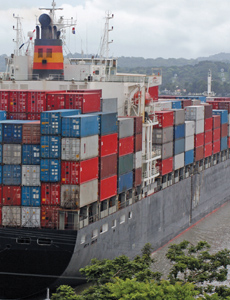Upfront
Territorial Disputes Threaten U.S. Interests
With anti-Japan protests breaking out in China, Sino-Japanese relations continue to worsen over territorial disputes over the Senkaku Islands (known as Diaoyu in China).
While neither Japan’s Prime Minister Shinzo Abe nor China’s Communist Party leader Xi Jinping seem eager for military action, no negotiations or talks have yet taken place, presenting risks to U.S. interests.
China claims that the tiny islands in the East China Sea have always been theirs. Japan, however, nationalized some of them in September 2012, arguing the islands were unclaimed and that China simply wanted access to nearby oil reserves.
Recently, Chinese ships have hovered around the islands and made their presence known to Japanese Coast Guard vessels.
The building tension poses several risks to U.S. companies’ supply chains as well as direct, insurable assets in the two countries.
Protests by Chinese citizens could escalate or Japanese properties could become targeted for attack, “but Japanese facilities and businesses have neighbors,” said Corina Monaghan, Towers Watson’s head of North American Crisis Management operations.
“A neighboring U.S. entity could suffer from political violence,” she said. “With any kind of tension between countries, when you have insurable interest in those countries, you end up being a victim.”
In addition to physical damages, companies could also suffer supply chain interruption. A military blockade, border closure, or denial of a ship’s passage through the disputed waters would endanger trade. Should the dispute worsen the likelihood also increases that cargo could be confiscated in contested waters.
Should the situation become more dangerous, the United States could impose sanctions on goods exported from China as a way to strengthen its alliance with Japan.
Some industries stand to suffer more than others.
“The tech industry is a big one,” according to Curtis Ingram, vice president of Aon Risk Solutions’ Political Risk practice, as technology research and development is heavily invested in the area.
“We’re coming up on Christmas, and we’re expecting our new smartphones and MP3 players to come out of China, and we’re not going to make sales” if a disruption occurs, he said.
Ingram said companies must consider both what they know and what they don’t know when deciding on political risk insurance. They know what their investment is in a particular area and therefore know what they stand to lose should it be jeopardized. They also know the cost of insurance. What they don’t know is the future.
“No one has a crystal ball,” Ingram said. “You can see China’s a little unstable; they have internal turmoil over there, but nobody knows what’s going to happen.”
Monaghan said U.S. business has already felt the effects of China and Japan’s political unrest, but in “spurts and [for] short periods of time.” While there have been some delays and lags, they haven’t caused major hits to the balance sheet. Nonetheless, “companies should prepare for the possibility of crisis and big financial loss.”
The Arab spring of 2011 proved just how quickly tables can turn. “In December of 2010, I was trying to sell political risk insurance in Egypt, and nobody wanted it,” Ingram said. “In February of 2011, I had a lot of unpleasant phone calls.”











